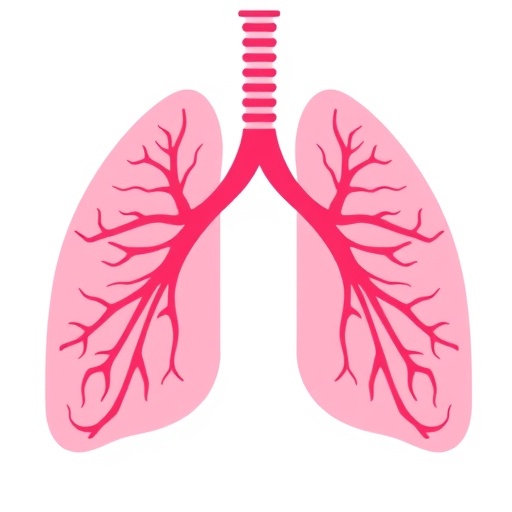Lung cancer remains one of the deadliest malignancies worldwide, with early detection standing as a critical factor in improving patient survival rates. Recently, a striking study published in BMC Cancer has thrown light on the complex dynamics that shape lung cancer screening (LCS) utilization among high-risk individuals, particularly those with a history of smoking, and the perspectives of primary care physicians who serve as gatekeepers to this vital preventive service. Employing a mixed-methods design, this groundbreaking research uncovers an intricate interplay of knowledge gaps, systemic barriers, and behavioral nuances that influence the adoption of low-dose computed tomography (LDCT) screening, despite its proven efficacy.
The research sets out with a sobering acknowledgment: although LDCT is an effective tool capable of detecting lung cancer at its nascent stages and reducing mortality significantly, its uptake lags substantially behind other cancer screening modalities. This paradox invites a granular investigation into patient and provider experiences, as their perceptions and interactions fundamentally determine whether screening recommendations translate into real-world action.
By integrating surveys with in-depth qualitative interviews, the study gathers insights from fifty patients aged 55 to 80, all with a documented history of smoking, and seven primary care physicians operating across diverse clinical settings in the United States. This approach allows the extraction of rich, textured data, illuminating the cognitive, emotional, and logistical factors guiding screening decisions and behaviors from both sides of the clinical encounter.
An initial and pivotal theme emerging from the data reveals a stark contrast in knowledge levels: patients exhibit limited awareness about the purpose, processes, and benefits of lung cancer screening—even among those who have undergone testing consistent with LCS recommendations. Conversely, primary care providers demonstrate a high degree of familiarity and understanding of LDCT screening, propelled by public health guidelines and clinical education.
Despite providers’ solid grounding in LCS protocols, a revealing disconnect lies in how often shared decision-making—a cornerstone of patient-centered care in screening contexts—is actually practiced. The study identifies substantial variability in whether and how providers engage in these conversations, underscoring missed opportunities to inform, motivate, and empower patients in weighing LCS benefits against potential risks.
Interestingly, patient feedback frames the LDCT procedure itself as generally acceptable and well tolerated. Contrary to common fears surrounding diagnostic radiation or procedural discomfort, the low-dose CT scans involved in lung cancer screening provoke minimal distress, reinforcing the clinical feasibility of widespread LCS deployment if other barriers can be addressed.
Yet, system-level obstacles loom large. The referral and navigation processes required to move from screening eligibility to test completion are frequently cumbersome, diffusing momentum and dampening patient uptake. This complexity intersects with patients’ logistical challenges—such as scheduling obstacles and understanding insurance policies—further curtailing screening rates in a population already burdened by health disparities.
Insurance coverage, while a significant consideration for many healthcare interventions, appears to exert a surprisingly limited influence over provider behavior in this domain. Instead, public health guidelines serve as the primary compass directing clinical recommendations, suggesting that improving insurance clarity and accessibility may unlock additional leverage points to streamline screening pathways.
The investigation’s findings also shed light on the motivational landscape: patients express genuine interest in lung cancer screening when adequately informed, yet lack of knowledge and system inefficiencies create a gap between intent and action. This disconnect highlights the imperative for tailored educational initiatives, designed to elevate patient understanding and engagement.
Given the complexity of factors impeding LCS utilization, the researchers advocate for systemic reforms. These reforms include embedding structured shared decision-making frameworks within primary care workflows, simplifying referral architectures through care coordination mechanisms, and deploying patient navigation services to dismantle practical and psychological barriers.
The implications resonate well beyond lung cancer, offering a blueprint for optimizing preventive health strategies that wrestle with similar issues of underutilization amidst proven efficacy. By illuminating the nuanced patient-provider interface and operational bottlenecks, this study charts a path toward harnessing screening tools that promise to transform disease trajectories on a population scale.
Moreover, its mixed methods design accentuates the power of qualitative data to complement quantitative metrics, revealing subtleties in attitude and experience that statistics alone may obscure. This holistic perspective is invaluable for policy-makers, clinicians, and healthcare administrators seeking to calibrate interventions that resonate with real-world complexities.
As lung cancer screening continues to evolve with technological advancements and shifting guideline thresholds, the introduction of future artificial intelligence-assisted image interpretation and remote assessment technologies may further reduce existing barriers. However, as this study underscores, technological innovation must be paired with robust patient education and systemic facilitation to fulfill the promise of mortality reduction.
In conclusion, this seminal research adds critical depth to the discourse on lung cancer screening, bridging the gap between evidence-based recommendation and actual clinical practice. By centering patient experiences and provider perspectives, it surfaces actionable insights that can galvanize health systems toward more effective, equitable, and patient-centered cancer screening paradigms, ultimately aiming to save lives through earlier intervention.
Subject of Research: Patient and primary care provider experiences with lung cancer screening in high-risk populations.
Article Title: Lung cancer screening experiences among patients with a smoking history and primary care providers: a qualitative study.
Article References:
Japuntich, S.J., Sacasa, N.G., Cameron, S. et al. Lung cancer screening experiences among patients with a smoking history and primary care providers: a qualitative study. BMC Cancer 25, 1305 (2025). https://doi.org/10.1186/s12885-025-14716-6
Image Credits: Scienmag.com




